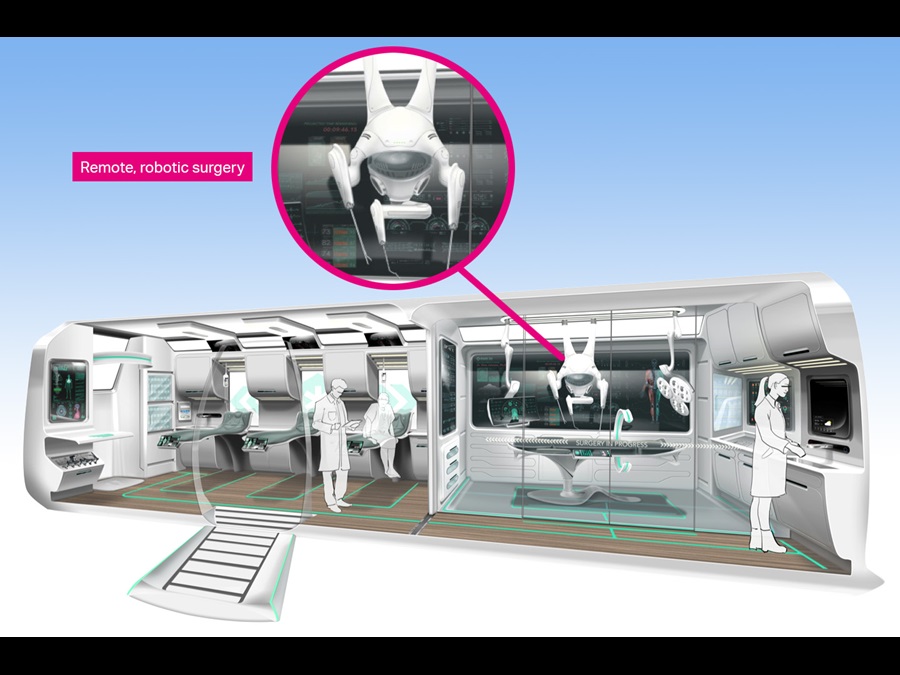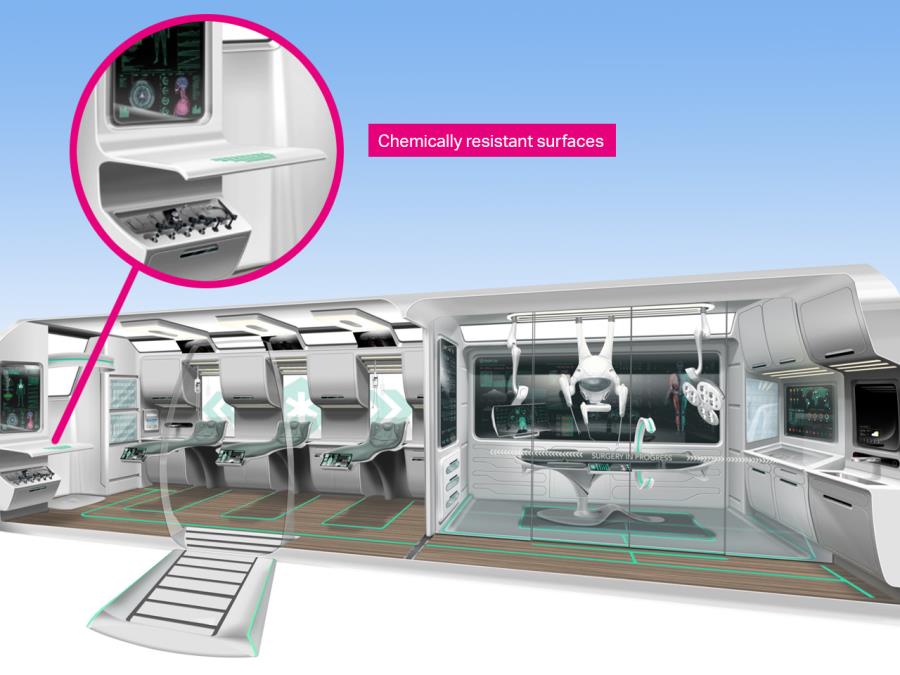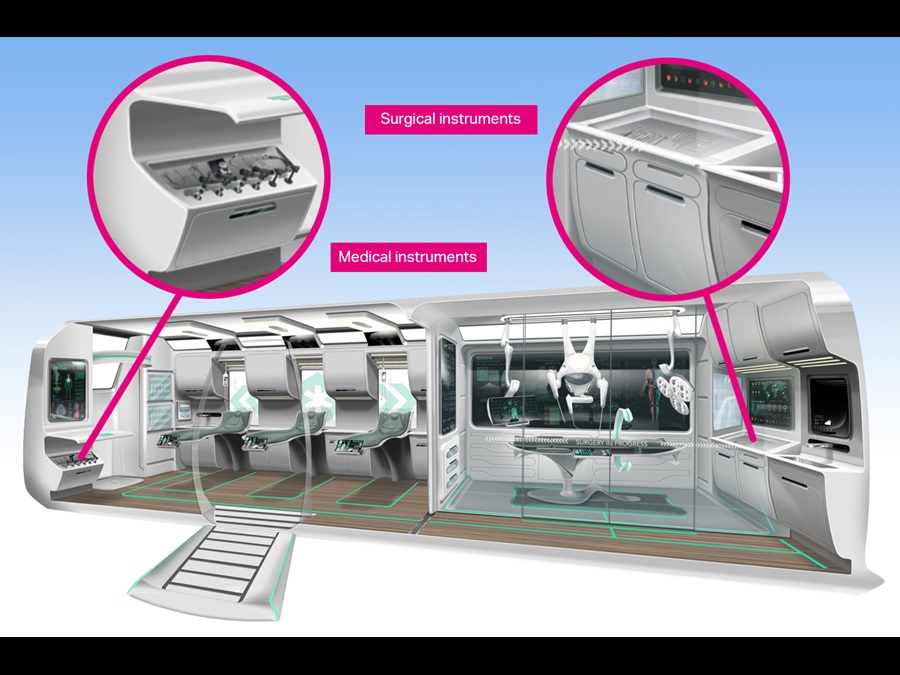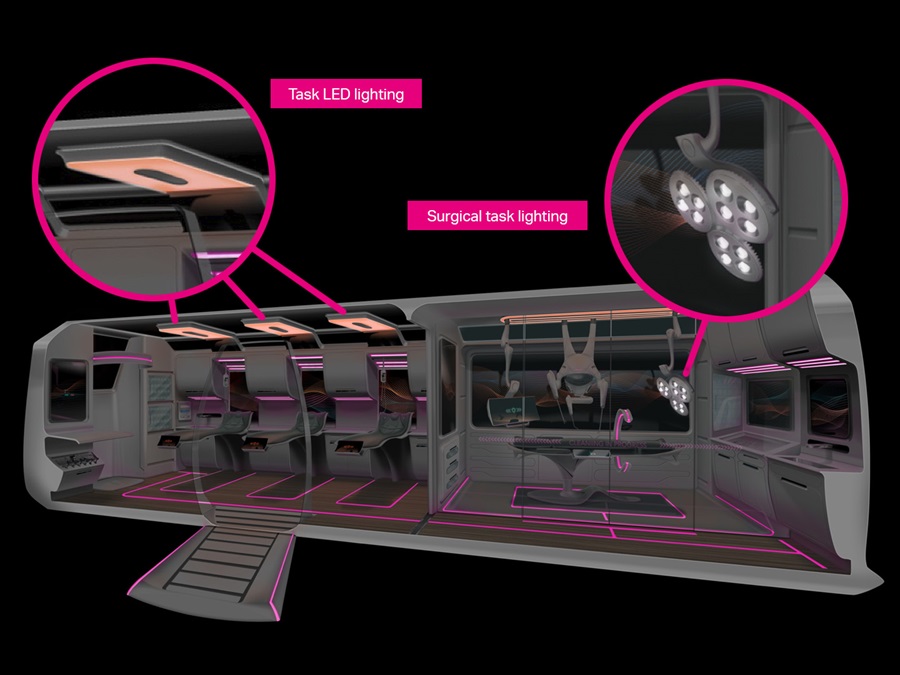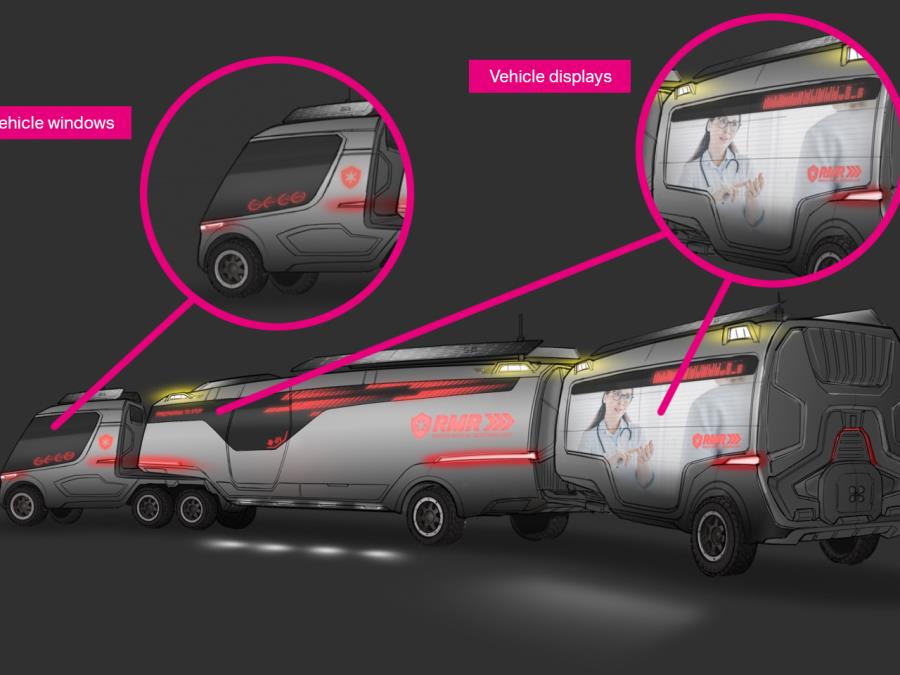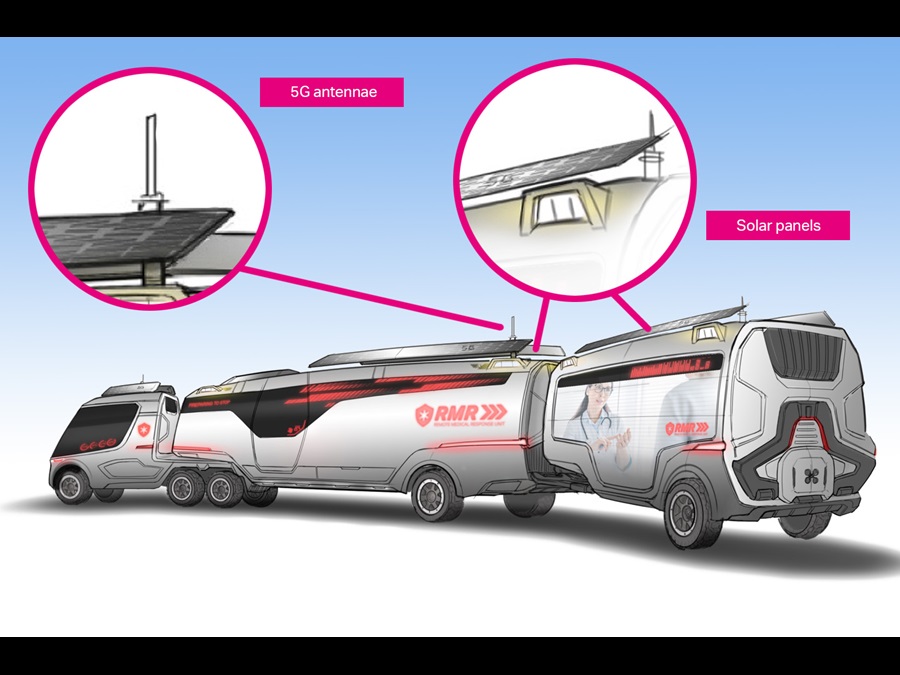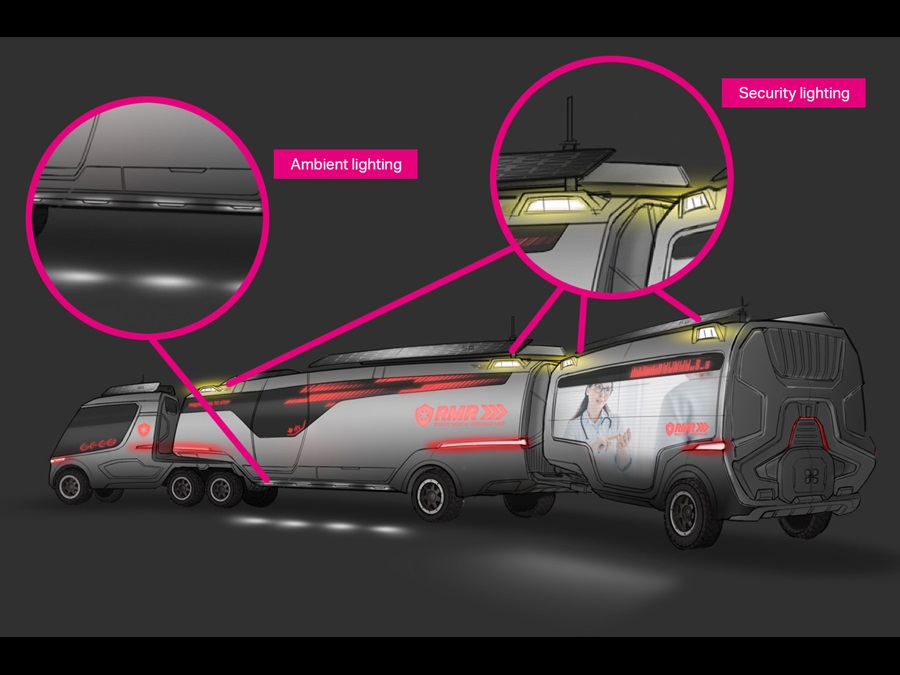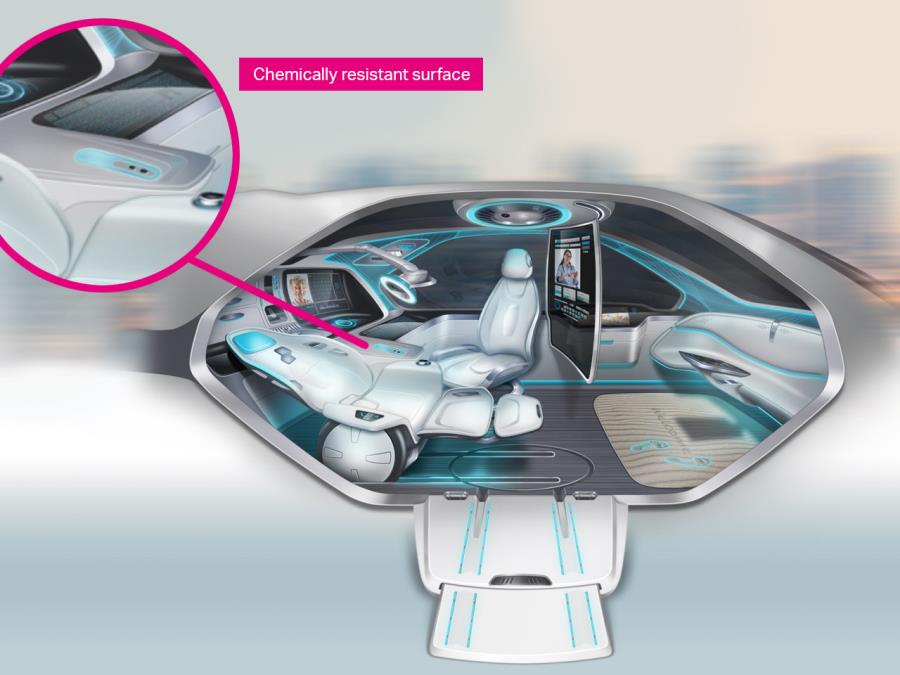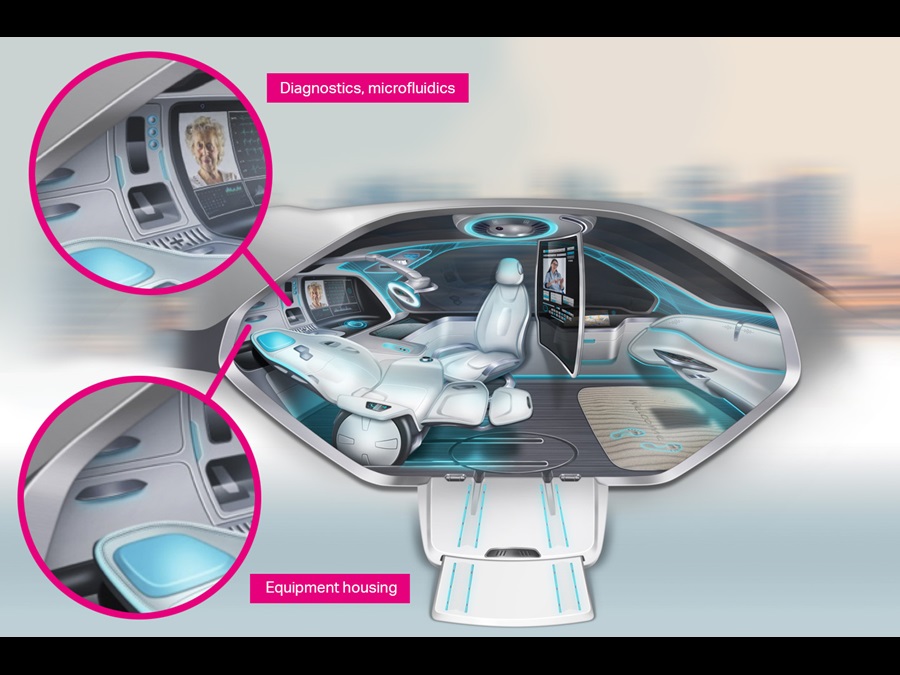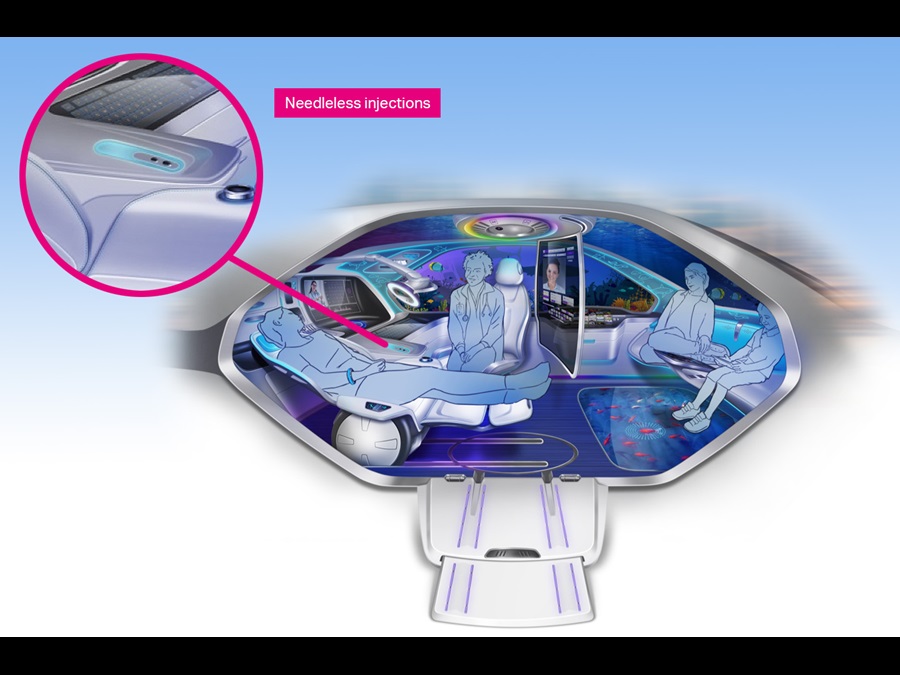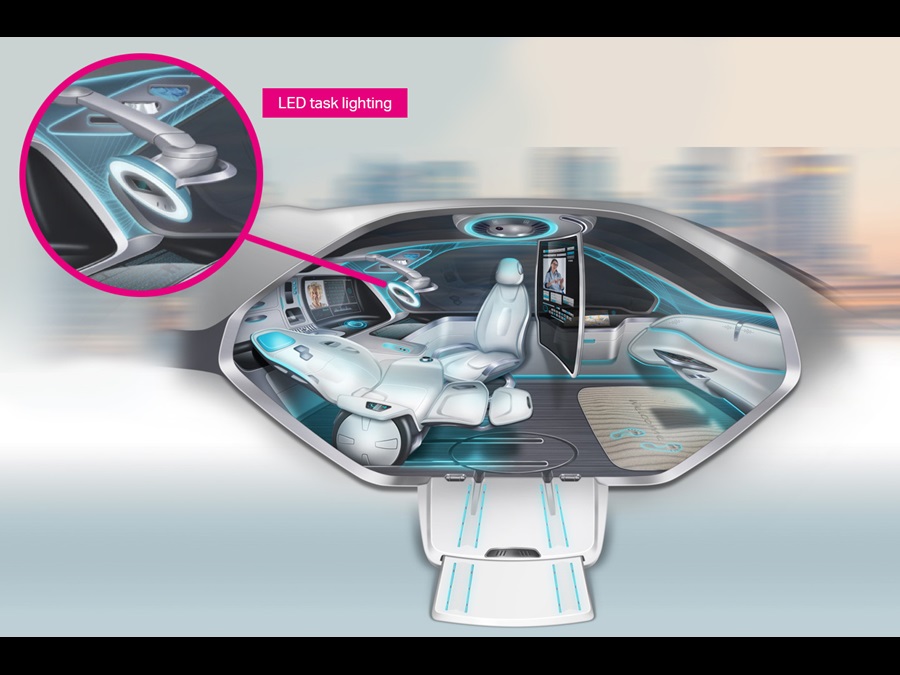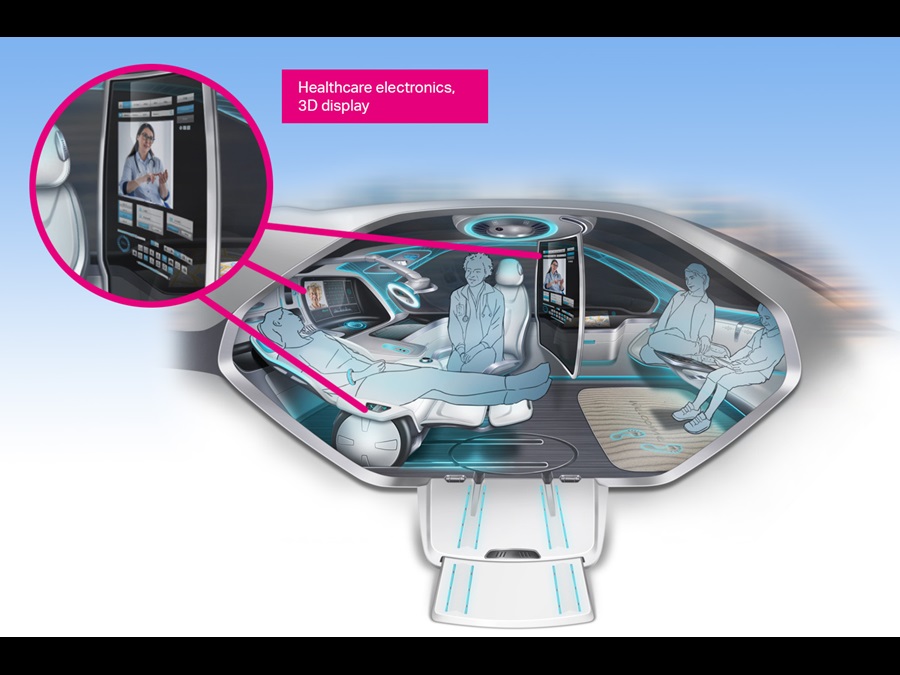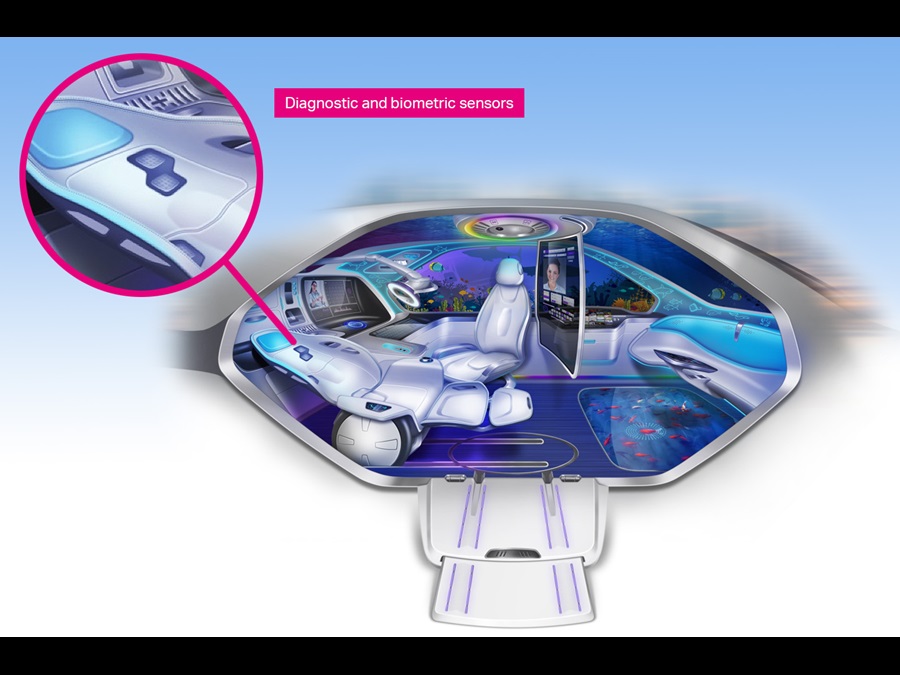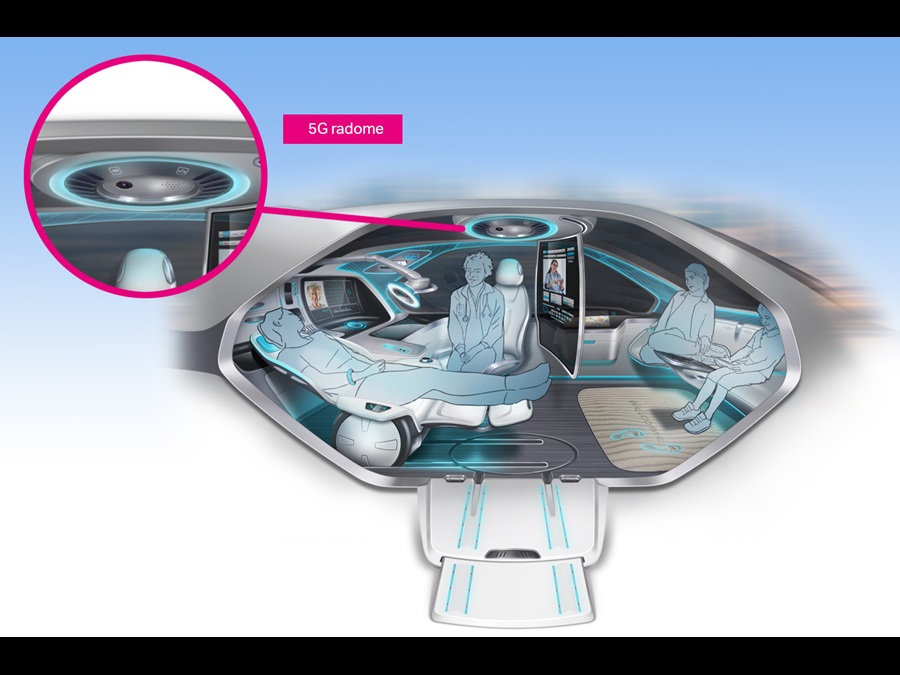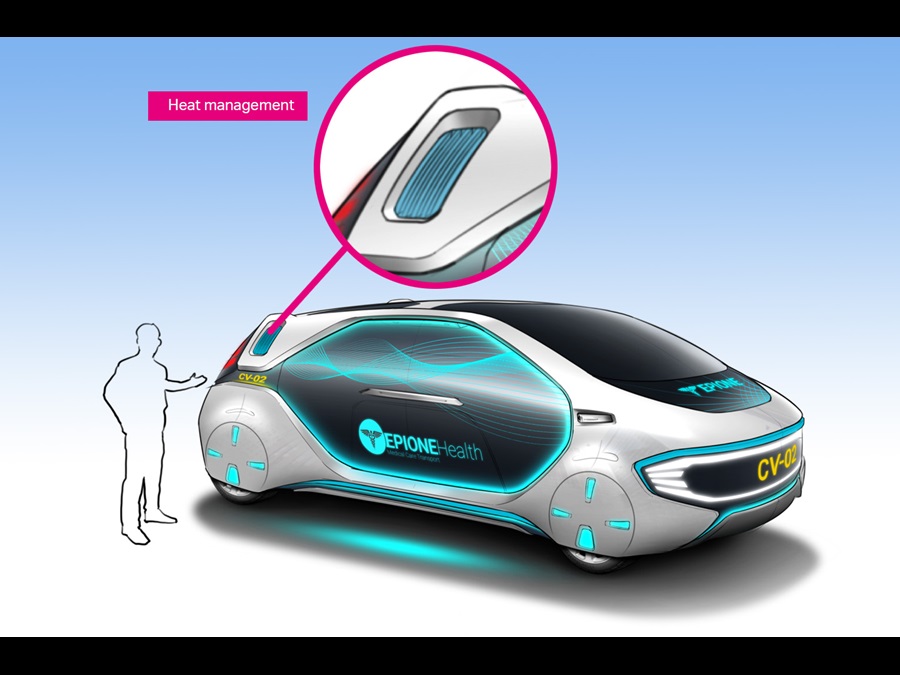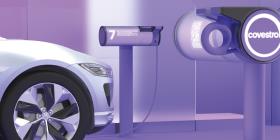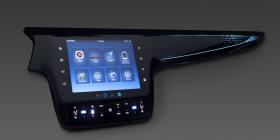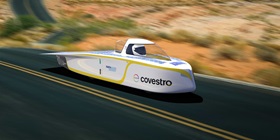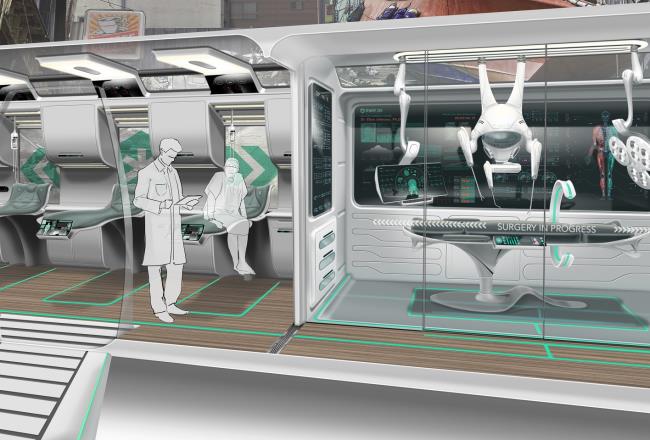
Story
Covestro envisions novel solutions for electronics-enabled mobile healthcare
As a thought leader in materials, design and production process technologies, Covestro collaborated with designers to gain insights and envision solutions to the converging needs of the mobility, electronics and healthcare industries. Concepts for off-grid and on-grid healthcare were explored.
Thought leadership: Spotting technology convergences among our diverse customers
Breaking down boundaries and creating new opportunities is part of the DNA of Covestro. Our high-performance material solutions are used widely in the automotive sector, by healthcare providers, and in electronic devices and electric appliances. Our expertise in these sectors and their value chains gives us insights into how each is being transformed by changing social needs and technology. To understand exactly how mobility, medical care and electronics are converging, we approached the issue from multiple perspectives simultaneously.
We started with an initial brainstorming on a design brief for design students at the College for Creative Studies in Detroit, USA, which asked them to consider how to improve electronic healthcare systems of the future. Inspired by their findings, at Covestro we systematically extracted the key design elements that could be specifically enabled by polycarbonate materials. We then took these concepts to Bally Design, Inc. in Pittsburgh for them to envision how these groundbreaking ideas might enable on-grid/chronic and off-grid/acute health care solutions. Now, with these visions in hand, we are actively seeking collaborators along the value chain for exploratory projects to bring these cross-fertilized solutions to life.
Understanding interlinked changes in healthcare, mobility and electronics
In briefing the design students to develop ideas for future electronics-enabled mobile health care, we outlined trends that we observe with our varied customers. The automotive sector is going electric (EVs), and the share of driverless or autonomous vehicles (AVs) is set to grow rapidly. Healthcare system providers will need patient-care specific fleets of vehicles because geographic coverage will become more important as clinical services that were previously locked into fixed locations become possible on a mobile or online basis. Freed of the requirement to have a driver, autonomous vehicle interiors can be optimized for clinical care, so durable and functional interiors will be critical.
Wearable medical devices will interact seamlessly with electronic healthcare systems to monitor health information and even diagnose patients. Bringing medical expertise to patients that are immobile or without hospital access means that more clinical consultations and examinations are possible – improving patient care while relieving the growing pressure on personnel and monetary resources.
Vehicles will need the ability to withstand hundreds of patient visits while allowing for medical care to be provided in remote (off-grid) or within urban (on-grid) areas. Quick cleaning and disinfection must be possible, while patients will require secure, confidential and 5G connected medical record handling, electronic device charging, and infotainment and social media connections while waiting. Initial investment in this mobile infrastructure will be high, so the pressure will be intense to make these new, improved electric vehicles (EVs) cost-effective by maximizing their utility.
Two scenarios: Acute medical care vehicle (remote, off-grid) or chronic care SUV (urban, on-grid)
Two broad scenarios drive the vision for improved mobile healthcare provision, and both types of vehicles will require groundbreaking design and material solutions. The first vehicle is focused on providing acute care off-grid, either after a disaster or in remote locations of developing countries. For this scenario, designers foresee a large trailer-like, multi-unit truck solution that can house 3-10 people, typically two caregivers, an emergency/intensive care patient and up to five other patients in the vehicle, with triage or educational services provided outside. The medical trailer could stay in place providing care while the EV, AV vehicle goes back and forth to headquarters for restocking. The most likely owners and operators would be NGOs and non-profit development organizations.
The other autonomous, electric vehicle scenario is a premium, on-the-move medical service in cities and suburbs of developed countries where chronic medical conditions are often undertreated. Here, a vastly different solution is needed: an enlarged sport utility vehicle (SUV) focused on the needs of multigenerational patients, with the capacity to provide routine and chronic care, e.g. diabetes, kidney dialysis or pain management. This sort of privately branded vehicle could have 2-4 passengers including a caregiver, the patient and up to two family members. Hospital or medical care centers would be the most likely owners and operators of this sort of for-profit service.
In both vehicle concepts, polycarbonate (PC) resins and technical expertise from Covestro are versatile enablers, blending our experience in mobility, healthcare and electronics to create groundbreaking solutions for change in healthcare provision.
Off-grid acute care: Covestro material solutions integrate healthcare with mobility and electronics
A mobile, multi-unit truck that operates off-grid in rough terrain will clearly require seamless, weatherproof exterior surfaces that are impact and heat resistant. Bayblend® and Makroblend® polycarbonate resins make for robust surface panels, along with Makrolon® polycarbonate for integrated exterior displays that can remain hidden until they are lit. Lightweight, durable and impact-resistant polycarbonates such as Makrolon® AG make an optimal glazing solution for vehicle windows, skylights, and displays that are also infra-red (IR) reflective.
Inside the vehicle, our vision for futuristic healthcare comes to life with bright, precise surgical task lighting and ambient lighting emitted by embedded LED components made from Makrolon® LED, Ai, TC and Apec® materials. Robotic surgery can be carried out remotely thanks to structural and robotic components made from solid, temperature resistant Makrolon® CF and GF filled materials, with the motorized units constructed with Makrolon® and Bayblend® FR resins. Caregivers who travel with the vehicle will be able to reach for solid surgical instruments made of Makrolon® LF, CF and GF filled-material polycarbonates. Medical instruments and sharps can be stored securely in Bayblend® housings, and chemical resistant surfaces throughout the vehicle can be manufactured using Makrolon®, Bayblend® and Makroblend® materials.
No future mobile healthcare facility will be complete without interoperability and electronics technology that includes edge computing, reliable cameras and security equipment as well as unimpeded 5G connectivity. Thermally conductive and flame retardant materials such as Makrolon® TC polycarbonate improve integrated heat management for CPUs and servers. The fact that Makrolon® polycarbonate is resistant to both high and low temperatures while also coming in transparent versions, makes it an impact resistant, versatile solution for on-board cameras and security equipment. Another interesting characteristic of polycarbonates is that they allow for wiring and embedded electronics. This means that integrated 5G antennas are always available to provide reliable connections with local 5G networks or satellites.
Mobile medical care on-grid: polycarbonates open doors to many new solutions
In a more urban, on-grid context where an SUV vehicle provides roaming medical services on a for-profit basis, polycarbonate resins and engineering support from Covestro also enable cutting-edge solutions.
Human machine interface (HMI) will play a critical role in a vehicle that functions as a combined examination room and waiting lounge pod. User interface (UI) surfaces will be found throughout the vehicle, made with versatile Makrolon® Ai, Makrolon® and Bayblend® FR polycarbonates which enable seamless infotainment displays on complex curved surfaces while also integrating sensors for patient biometrics and diagnostics.
An integrated 5G radome made of Bayblend® XF and FR materials ensures continuous connectivity, while thermal management materials such as Makrolon® TC polycarbonate can provide integrated cooling for on-board computers and servers. In this innovative vehicle, lighting will help establish a relaxed mood, which is critical to patient care, so diffuse ambient lighting is integrated using Makrolon® Ai, LED, DQ and TC material variants.
Beyond lighting, consultations and treatments will demand a clinical environment with chemical resistant, seamless surfaces that make sterilization easy, along with durable housings for diagnostic equipment. Makrolon®, Makroblend® and Bayblend® healthcare grades are suited to this application, while Covestro polycarbonate solutions are also found in wearable medical devices, uniting highly durable materials with skin-safe coatings and embedded sensors. This autonomous mobile medical treatment pod will also rely on sensors made with tinted Makrolon® and Bayblend® polycarbonate solutions to ensure safe movement in traffic.
Covestro seeks partners to explore bringing vision to reality
To develop clear visions for how electronics enable healthcare can be realized in the future, we are currently seeking forward-looking partners in the healthcare, mobility and electronics sectors who are interested in creating movement toward the solutions of tomorrow.
Covestro collaborated with design students and industrial designers to gain insights and envision how healthcare will converge with mobility and electronics to create innovative solutions that no one had previously thought of. Now we are interested in collaborating with partners to transform this vision into reality.
Key Benefits
- Visionary Covestro brings insights to the future of electronics-enabled mobile healthcare.
- Versatile Polycarbonate solutions from Covestro are ideal for multiple applications.
- Collaborative We seek partners to bring our mobile electronic healthcare visions to life.







